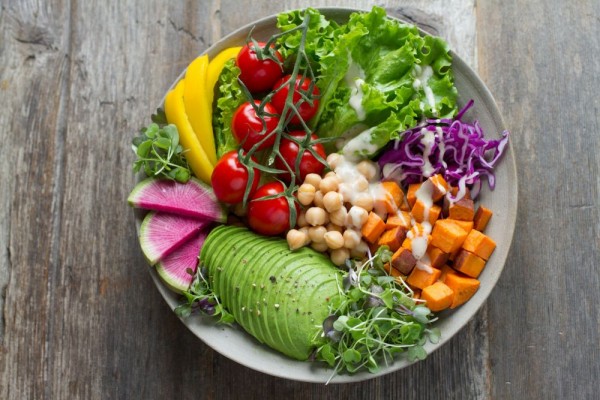Healthy Food Antioxidants: Unraveling the Mysteries of Cellular Protection
Healthy Food fifu
Abstract: In the realm of nutritional science, healthy food antioxidants emerge as powerful defenders, safeguarding our bodies against the perils of oxidative stress and cellular damage. This article delves into the captivating world of healthy food antioxidants, exploring their essential role in promoting optimal health, combating chronic diseases, and rejuvenating our bodies. From the science behind free radicals to practical tips for incorporating antioxidant-rich foods into our diets, we embark on an enlightening journey to embrace the potent magic of nature’s protective armor.
Understanding Healthy Food Antioxidants
Healthy food antioxidants refer to a diverse group of bioactive compounds found in plant-based foods. These powerful agents neutralize harmful free radicals, preventing cellular damage and promoting overall well-being.
The Science Behind Free Radicals
1. Formation of Free Radicals
Free radicals are unstable molecules that form naturally in the body as byproducts of metabolism. Environmental factors, such as pollution and UV radiation, can also contribute to their formation.
2. Oxidative Stress
An imbalance between free radicals and antioxidants in the body leads to oxidative stress, a condition linked to various chronic diseases and aging.
The Role of Antioxidants in Cellular Protection
1. Neutralizing Free Radicals
Antioxidants generously donate electrons to stabilize free radicals, preventing them from causing damage to cells.
2. Repairing Cellular Damage
Antioxidants help repair damaged cells and support their proper functioning.
3. Boosting Immunity
By reducing oxidative stress, antioxidants strengthen the immune system and its ability to fight off infections.
The Diverse Spectrum of Antioxidants
1. Vitamin C (Ascorbic Acid)
Found abundantly in citrus fruits, berries, and leafy greens, vitamin C is a potent water-soluble antioxidant that enhances immune function and promotes collagen production.
2. Vitamin E (Tocopherols)
Vitamin E, found in nuts, seeds, and vegetable oils, is a fat-soluble antioxidant that protects cell membranes from damage.
3. Beta-Carotene
Abundant in colorful fruits and vegetables like carrots, sweet potatoes, and spinach, beta-carotene is a powerful precursor to vitamin A and a scavenger of harmful free radicals.
4. Flavonoids
Flavonoids, found in tea, berries, and cocoa, are a group of antioxidants with anti-inflammatory and heart-protective properties.
5. Polyphenols
Polyphenols, present in green tea, red wine, and dark chocolate, have diverse antioxidant and anti-aging effects.
The Impact of Antioxidants on Health
1. Heart Health
Antioxidants, such as flavonoids and polyphenols, support heart health by reducing oxidative stress and improving blood vessel function.
2. Cancer Prevention
Antioxidants help protect against DNA damage and mutations, lowering the risk of cancer development.
3. Skin Health
Vitamins C and E, along with other antioxidants, promote skin health by supporting collagen synthesis and protecting against UV-induced damage.
4. Brain Function
Antioxidants, particularly flavonoids and vitamin E, are associated with improved cognitive function and reduced risk of neurodegenerative diseases.
Incorporating Antioxidant-Rich Foods into Your Diet
1. Colorful Fruits and Vegetables
Opt for a variety of colorful fruits and vegetables like berries, oranges, broccoli, and bell peppers to maximize your antioxidant intake.
2. Nuts and Seeds
Snack on almonds, walnuts, and sunflower seeds, which are rich in vitamin E and other antioxidants.
3. Dark Chocolate
Indulge in moderate amounts of dark chocolate with a high cocoa content for a delicious dose of antioxidants.
4. Herbs and Spices
Include herbs and spices like turmeric, cinnamon, and oregano in your recipes for a flavorful antioxidant boost.
Cautions and Considerations
1. Supplements vs. Whole Foods
While antioxidant supplements are available, it is best to obtain these beneficial compounds from whole foods to maximize their potential health benefits.
2. Balance and Moderation
Although antioxidants offer numerous health benefits, balance and moderation are key to a well-rounded and diverse diet.
3. Individual Needs
Individual antioxidant needs may vary based on factors such as age, lifestyle, and health status. Consult a healthcare professional for personalized advice.
Conclusion
As we venture into the enchanting realm of healthy food antioxidants, we unlock the door to cellular protection and vibrant well-being. Embracing a diet rich in colorful fruits, vegetables, nuts, and spices, we savor the delightful array of flavors and nourish our bodies with the essential defense mechanisms that nature bestows upon us.
The dance of antioxidants and free radicals within our bodies reveals the delicate balance that shapes our health and longevity. By cherishing the power of healthy food antioxidants, we embark on a transformative journey towards a life of vitality, resilience, and timeless well-being.

